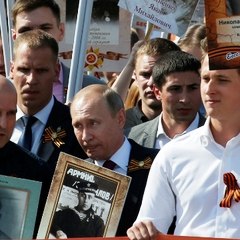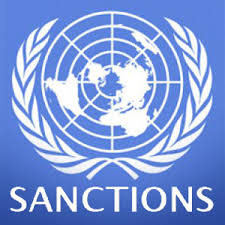(PONARS Eurasia Policy Memo) What are the prospects for Russian-North Korean relations today? Ruled by a harsh totalitarian regime, the Democratic People’s Republic of Korea, or North Korea, is one of the world’s most isolated countries. In addition to China, Russia is one of its few outlets for international political and economic relations. North Korea and Russia share a short, 17-kilometer, land border and have historically maintained trade relations. As Russia attempts to “turn to the east” as one strategy for combating its own international isolation, relations between Moscow and Pyongyang could become closer. The two states have been exploring projects that would be mutually beneficial. In engaging with North Korea, Russia’s ultimate goal is to create a trans-Korea transportation link that would enable it to increase its economic activity with South Korea, one of Russia’s top ten global trade partners. The plan’s appeal to the North would be modernization of transportation infrastructure and cash flow from transit fees. However, major obstacles stand in the way.
The Hot and Cold History of Russian-North Korean Relations
Decisive Soviet military and political support helped create North Korea in 1948. After the Korean War (1950-53) ended in a stalemate thanks to large-scale Chinese military assistance to Pyongyang, North Korea balanced its relations with Moscow and Beijing until the end of the 1980s. During that time, Soviet-North Korean cooperation rested on ideological closeness and lavish financial help and technical assistance.
After the collapse of the Soviet Union, Russia adhered to a pro-Western policy toward the Koreas. In the first half of the 1990s, Moscow officially framed North Korea as an ideologically unfriendly state that posed a range of threats to Russia. Russia was worried about North Korean smuggling of nuclear materials and technologies, drug trafficking, and crime and contract killings on Russian territory. Moscow also asked North Korea to pay back its multibillion debts and ceased providing it with large-scale financial, technical, and humanitarian assistance. In response, Pyongyang reduced to a minimum its diplomatic contacts with Moscow. North Korea was not in a position to make foreign payments, and it had a very narrow range of goods and services to offer. Accordingly, Russian-North Korean trade turnover collapsed, going from $2.35 billion in 1988 to just $85 million in 1996. Russia continued to sell some raw materials and equipment to North Korea while receiving a steady supply of cheap labor. Some in Russia and the West considered this exchange a form of slavery, as the overtaxed workers received tiny salaries (even by Russian standards) and often lived in camp conditions supervised by North Korean officials. The North Korean supervisors had extraterritorial powers to maintain discipline within the camps, prevent defections, and bring violators back to North Korea.
Bilateral relations partially improved in the second half of the 1990s when Moscow decided to take a more equidistant approach toward North and South Korea with the hope of being able to benefit from mediation and reconciliation efforts.
One potentially promising development during this time was the Rajin-Sonbong Economic Special Zone (later known as Rason), established in 1991. It was centered around the North Korean port of Rajin, close to Russia and China, and it offered relaxed rules for foreign investors. The project developed slowly, however, because Pyongyang periodically changed the zone’s legal status and development strategy. While Russia was interested in continuing to use the port of Rajin for cargo shipments, it was not able to provide much investment. Over time, it became dominated by China.
In the 2000s, after Vladimir Putin came to power, bilateral relations improved dramatically. One of the main incentives for Putin’s rapprochement policy was his designs for a transportation corridor between Russia and South Korea through North Korea. The idea was to link South Korea to the Trans-Siberian Railway, thereby offering a highly attractive westward route for Korean and Asia-Pacific cargo and enabling Russia to sell gas and electricity to South Korea. North Korea would benefit from infrastructure modernization and transit fees. Initially, North Korea gave its consent and the project developed quickly. However, the North Korean rail system was found to be in far worse condition than expected. Furthermore, Pyongyang began to impose inconvenient conditions. Despite setbacks, there was great hope for years that the project could succeed.
From 2006, new tensions between North and South Korea placed the project firmly on hold. For South Korea, any investment in a trans-Korean transport corridor became highly problematic. Bilateral relations between Russia and North Korea also deteriorated: Russia condemned the North’s nuclear program and missile tests and supported UN sanctions against Pyongyang in 2006. Russia was then hit by the 2008-2009 economic crisis.
Russian-North Korean trade turnover, which has always been overwhelmingly composed of Russian exports, reached its post-Soviet peak of almost $210 million in 2006. It then dropped to $45 million in 2009, before recovering to around $110 million in 2011-2012. It has since dropped again, to about $92 million in 2014 and $63 million in 2015. By comparison, Chinese-North Korean trade turnover was over $6 billion in 2013.
A few positive developments in bilateral relations occurred during this time. Over 2008-2014, Russia made large investments into the reconstruction of the railway from the Russian-North Korean border to the port of Rajin/Rason for $171 million and constructed a cargo terminal there for $109 million. In 2012, Moscow agreed to write off 90 percent of North Korea’s $10 billion debt and invest the remaining $1 billion into North Korean infrastructure projects. Then, in 2013, Russia tripled its quota for North Korean labor immigrants—a move that exceeded even the Soviet maximum—allowing for almost fifty thousand North Koreans to work in Russia in 2015. However, the quota was apparently not filled because of diminished demand due to Russia’s worsening economic condition. At the start of 2016, the estimated number of North Korean workers (primarily in construction, logging, and agriculture) was about thirty thousand.
Recent Moscow-Pyongyang “Politics”
The Russia-Ukraine conflict and ensuing breakdown in relations with the West created fertile ground for Russia’s further rapprochement with North Korea. Both countries need political allies in order to overcome their isolation and excessive dependence on their main economic partners—the EU for Russia and China for North Korea.
North Korea was among only 11 states that voted in March 2014 against a UN resolution condemning Russia’s annexation of Crimea. In its turn, Russia was among the few countries that voted against 2014 and 2015 UN resolutions that condemned the grave human rights violations in North Korea and called for international criminal investigations. Russia took some other steps to highlight its interest in closer bilateral relations. One was the decision to celebrate a Russian-North Korean “Year of Friendship” in 2015. Another was Russia’s agreement to a highly controversial (and UN-criticized) extradition treaty that returns North Korean refugees in Russia to North Korea. There was also an increase in mutual visits by senior officials throughout 2014-15.
North Korea’s dependence on China places a certain limitation on Russian-North Korean rapprochement. This was exemplified in May 2015 when North Korean President Kim Jong-un agreed to attend Russia’s Victory Day Parade, which most foreign leaders boycotted. He changed his mind at the last minute, however, and did not attend. According to Russian political observer Vassily Golovin, this was due to his fear of irritating Beijing; Jong-un did not want to jeopardize relations with China by going to Moscow and meeting the Chinese leader there without having first done so in Beijing.
On the whole, Moscow tries to keep equidistant to the two Koreas, as South Korea retains great economic importance. While no visible progress in the six-party talks for the denuclearization of the Korean peninsula was achieved in 2014 or 2015, Russia continues to moderately criticize both countries—Pyongyang for its nuclear arms and missile tests and Seoul for its overreliance on U.S. military assistance. Moscow argues that the North-South conflict could be resolved on the basis of multilateral security guarantees and a diminished U.S. military presence. Moscow would prefer to deal with a single Korean state or, at least, to have the two Koreas reconcile. In the meantime, Moscow will continue its balancing act.
Recent Moscow-Pyongyang “Economics”
Despite the low trade turnover between Russia and North Korea, there are some new bilateral trends and agreements that hold promise for an increase in cooperation.
First, Russia and North Korea concluded two ambitious investment deals in October 2014 and January 2015 worth billions of dollars over the course of a few decades. These projects envisage the modernization of North Korea’s railways and electrical networks in exchange for Russian access to North Korea’s rare and non-ferrous metals and high-quality coal. These projects would give Russia the opportunity to upgrade North Korean railways for use in a trans-Korean network. According to government officials, they could also boost bilateral trade turnover to as much as $1 billion by 2020. China has had such “barter trade” projects with North Korea for some time, involving the exchange of Chinese goods and technologies for mineral and labor resources.
Second, a year after putting into operation the Khasan-Rajin railway, Russia started to use the Rajin terminal to export its own coal in November 2014 (predominantly to China). Russian coal supplies via Rajin to South Korea were irregular and suspended in March 2016. Such supplies were a symbolically important step toward the creation of a transportation bridge between Russia and South Korea.
Third, in October 2015, Russia and North Korea announced an intent to establish an Asian Trading House. Among its main purposes is the intensification of direct bilateral business contacts and elimination of intermediaries. In particular, China allegedly re-exports Russian goods to North Korea worth $900 million annually. Even if this figure is exaggerated, switching to direct contacts would significantly contribute to the two countries’ bilateral trade turnover.
There remain significant obstacles to implementing Russia’s ambitious plans, however. Poor relations between North and South Korea seriously reduce the possibility of any large-scale trans-Korean transportation projects (as, for example, with South Korea’s suspension of coal imports via Rajin).
Russian investment also remains vulnerable to Pyongyang’s capriciousness and the instability of Russian-North Korean relations. Moscow condemned North Korea’s hydrogen bomb test this January and a space satellite launch (believed to be part of its ballistic missile development program) the following month. It followed this by supporting a UN resolution introducing severe economic sanctions against the North in March 2016. Russia supported the resolution on the condition that it would not affect its own coal exports via Rajin. Russia thus reserved the right to continue using the railway and port infrastructure that it had been modernizing.
Finally, there remain a host of structural impediments. These include Russia’s own economic problems, North Korea’s faulty economic management, the poor state of its transportation infrastructure, and the low capacity of Russian-North Korean crossborder transit.
Conclusion
In Russia’s “turn to the east,” North Korea could play a role. Primarily, Russia seeks trade relations with North Korea as a bridge to connect with South Korea, which Moscow considers (together with Japan) as the most viable counterweight to Chinese economic influence in the Far East. In terms of bilateral relations, however, North Korea’s role remains limited. In international politics, any vote from Pyongyang that is pro-Russia is useful, but Moscow is not in a position to give Pyongyang similar support. It is reluctant to excessively irritate Seoul and Beijing and itself remains wary of North Korea’s more dangerous actions. At the same time, even if Russian-financed projects move forward and Moscow and Pyongyang boost their bilateral trade, North Korea would still not be on Russia’s list of vital global economic partners.
Serghei Golunov is Professor at the Kyushu University Center for Asia-Pacific Future Studies.
[PDF]










